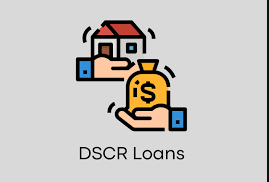dscr-loan-wisconsin – Are you an aspiring property investor in Wisconsin looking for financing options? One option you should consider is the Debt Service Coverage Ratio (DSCR) loan. In this blog post, we will provide you with a detailed and comprehensive guide to understanding and obtaining DSCR loans in Wisconsin. Whether you are a first-time investor or a seasoned professional, this article will equip you with the knowledge to make informed decisions.
What is a DSCR Loan?
When it comes to financing your real estate investments, dscr loan wisconsin it’s important to understand the concept of Debt Service Coverage Ratio (DSCR) loans. A DSCR loan is a type of loan specifically designed for property investors and commercial real estate ventures. Unlike traditional mortgages, which typically focus on the borrower’s personal income and creditworthiness, DSCR loans prioritize the property’s revenue-generating potential and its ability to cover the loan payments.
With a DSCR loan, lenders assess the property’s cash flow and calculate the debt service coverage ratio to determine whether the property generates enough income to cover the loan payments. This ratio is calculated by dividing the property’s net operating income (NOI) by the annual debt service (ADS). A DSCR of 1 or higher indicates that the property generates enough income to cover the loan payments, while a ratio below 1 suggests a potential risk of default.
How DSCR Loans Differ from Traditional Loans
One key difference between DSCR loans and traditional loans is the focus on the property’s cash flow rather than the borrower’s personal finances. Traditional loans heavily rely on the borrower’s credit score, income, and debt-to-income ratio to determine loan eligibility. In contrast, DSCR loans prioritize the property’s revenue potential and its ability to generate sufficient income to cover the loan payments.
Another difference lies in the underwriting process. Traditional loans may require extensive documentation of the borrower’s personal financial history, including tax returns, pay stubs, and bank statements. In contrast, DSCR loans primarily require documentation related to the property’s financials, such as rent rolls, operating statements, and leases.
The Importance of the Debt Service Coverage Ratio
The debt service coverage ratio (DSCR) is a critical factor in obtaining a DSCR loan. Lenders use this ratio to assess the property’s ability to generate enough income to cover the loan payments. A higher DSCR indicates a lower risk of default and increases the likelihood of loan approval.
Typically, lenders prefer a DSCR of 1.25 or higher, as it provides a cushion for unexpected expenses or fluctuations in the property’s income. A higher DSCR not only increases the chances of loan approval but may also lead to more favorable loan terms, such as lower interest rates or longer repayment periods.
Eligibility and Qualifications
Before diving into the process of obtaining a DSCR loan in Wisconsin, it’s essential to understand the eligibility criteria and qualifications required by lenders. While specific requirements may vary among lenders, there are some common factors that lenders consider when evaluating loan applications.
Credit Score and Financial History
While DSCR loans prioritize the property’s cash flow, lenders still consider the borrower’s creditworthiness. A good credit score demonstrates your ability to manage your finances responsibly and increases your chances of loan approval. Lenders typically prefer a credit score of 680 or higher for DSCR loans.
In addition to credit score, lenders will also examine your financial history, including any previous bankruptcies, foreclosures, or delinquencies. A clean financial history strengthens your loan application and instills confidence in lenders regarding your ability to manage the loan responsibly.
Income Stability
Stable and reliable income is crucial when applying for a DSCR loan. Lenders want to ensure that you have a consistent source of income to cover any potential gaps in the property’s cash flow. This is particularly important for borrowers who rely on rental income from the property to make loan payments.
When evaluating your income stability, lenders may require documentation such as tax returns, W-2 forms, or profit and loss statements for self-employed individuals. Providing proof of consistent income will increase your chances of loan approval and demonstrate your ability to handle the financial obligations associated with the loan.
Property Value and Cash Flow
The value and cash flow potential of the property play a significant role in obtaining a DSCR loan. Lenders assess the property’s value to determine the loan-to-value (LTV) ratio, which compares the loan amount to the property’s appraised value. A lower LTV ratio signifies a lower risk for the lender.
Furthermore, lenders consider the property’s cash flow, as it directly affects the debt service coverage ratio (DSCR). They will evaluate the property’s rental income, operating expenses, and potential for future growth. Providing comprehensive documentation, such as rent rolls, operating statements, and projections, will help lenders assess the property’s cash flow potential and make an informed decision.
The Application Process
Now that you understand the eligibility criteria, let’s delve into the step-by-step process of applying for a DSCR loan in Wisconsin. While the specific requirements may vary depending on the lender, the general application process remains relatively consistent.
Gather Necessary Documentation
Before starting the application process, gather all the necessary documentation to support your loan application. This documentation typically includes:
- Rent rolls: A detailed record of all current and projected rental income from the property.
- Operating statements: Financial statements that outline the property’s income and expenses.
- Lease agreements: Copies of all current lease agreements with tenants.
- Property appraisal: An assessment of the property’s value conducted by a professional appraiser.
- Personal financial statements: Documents that provide an overview of your personal financial situation, including assets, liabilities, and net worth.
- Business plan: A comprehensive plan outlining your investment strategy, property management approach, and financial projections.
Gathering these documents in advance will expedite the application process and demonstrate your preparedness to the lender.
Research and Choose Lenders
Once you have your documentation ready, it’s time to research and choose potential lenders. Look for lenders who specialize in DSCR loans and have experience working with property investors in Wisconsin. Consider factors such as interest rates, loan terms, and reputation when evaluating potential lenders.
It’s advisable to contact multiple lenders to compare loan offerings and obtain pre-qualification or pre-approval. This step allows you to understand the loan amount you may qualify for and the terms and conditions associated with the loan.
Submit Your Application
After selecting a lender, it’s time to submit your loan application. Fill out the application form provided by the lender, ensuring that you provide accurate and complete information. Attach all the necessary documentation, as outlined by the lender, to support your application.
Double-check your application and documentation before submission to avoid any errors or omissions that may delay the loan approval process. It’s also helpful to include a cover letter summarizing your investment strategy, your experience in property investing, and your goals for the property.
Loan Processing and Underwriting
Once your application is submitted, the lender will initiate the loan processing and underwriting stage. During this phase, the lender will review your application, documentation, and financial history in detail. They may also conduct a property appraisal and verify the information provided.
It’s crucial to remain responsive during this stage and promptly provide any additional information or clarification requested by the lender. Delays in providing requested documentation may prolong the underwriting process and delay the loan approval.
Loan Approval and Closing
If your loan application is approved, congratulations! The lender will issue a loan commitment letter outlining the approved loan amount, interest rate, loan terms, and any other conditions. Review the commitment letter carefully and seek clarification if needed.
Once you are satisfied with the loan terms, the final step is the loan closing. During the closing, you will sign the loan documents and provide any additional documentation required by the lender. The lender will disburse the loan funds, and you can proceed with your property investment plans.
Understanding DSCR Loan Terms and Conditions
Before committing to a DSCR loan, it’s crucial to have a clear understanding of the terms and conditions associated with the loan. Here are some key elements to consider:
Interest Rates
Interest rates significantly impact the overall cost of borrowing. DSCR loans may have fixed or variable interest rates. Fixed rates provide stability, as the interest rate remains constant throughout the loan term. Variable rates, on the other hand, may fluctuate based on market conditions.
When evaluating loan options, compare interest rates offered by different lenders and assess the potential impact on your cash flow. A lower interest rate can lead to substantial savings over the life of the loan.
Loan Terms and Repayment Schedule
DSCR loans typically have different loan terms and repayment schedules compared to traditional mortgages. Loan terms can range from five to twenty-five years, depending on the lender and the property type. Longer loan terms may result in lower monthly payments but may also increase the total interest paid over theloan’s life.
Understanding the repayment schedule is crucial to manage your cash flow effectively. Some DSCR loans may require interest-only payments during an initial period, followed by principal and interest payments. Others may have a fully amortizing structure, where both principal and interest are paid from the beginning.
Consider your investment strategy, property cash flow projections, and financial goals when choosing the loan term and repayment schedule. Ensure that the loan terms align with your investment timeline and allow you to comfortably meet your financial obligations.
Prepayment Penalties
It’s essential to be aware of any prepayment penalties associated with the DSCR loan. Prepayment penalties are charges imposed by the lender if you choose to pay off the loan before the agreed-upon term. These penalties are designed to compensate the lender for potential lost interest income.
Prepayment penalties can vary in structure and duration. Some penalties may be a percentage of the outstanding loan balance, while others may follow a declining scale over the loan term. Carefully review the loan terms to understand the prepayment penalty structure and factor it into your investment plans.
Loan-to-Value Ratio (LTV)
The loan-to-value ratio (LTV) is an important factor in determining the loan amount you can qualify for. LTV represents the percentage of the property’s appraised value that the lender is willing to finance. A lower LTV ratio reduces the lender’s risk and may result in more favorable loan terms.
Typically, DSCR loans have lower LTV ratios compared to traditional mortgages. LTV ratios for DSCR loans can range from 65% to 85%, depending on the property type, location, and other factors. Understanding the LTV ratio offered by the lender will help you assess your equity requirements and plan your financing strategy accordingly.
Additional Fees and Costs
Aside from interest rates and prepayment penalties, there may be additional fees and costs associated with obtaining a DSCR loan. These fees can include origination fees, appraisal fees, legal fees, and underwriting fees, among others.
Review the loan estimate and closing disclosure provided by the lender to understand the breakdown of these fees. Consider these costs when evaluating the overall affordability of the loan and its impact on your investment returns.
Comparing DSCR Loans with Other Financing Options
While DSCR loans are a popular choice for property investors in Wisconsin, it’s important to compare them with other financing options available. Each financing option has its own advantages and disadvantages, and understanding the differences will help you make an informed decision.
Traditional Mortgages
Traditional mortgages are the most common financing option for residential real estate. They are typically offered by banks and require a thorough evaluation of the borrower’s personal finances, including credit score, income, and debt-to-income ratio.
Compared to DSCR loans, traditional mortgages may offer lower interest rates, longer loan terms, and higher loan-to-value ratios. However, they may also have stricter qualification requirements and may not be as suitable for commercial or investment properties.
Commercial Loans
Commercial loans are specifically designed for commercial properties, such as office buildings, retail spaces, or industrial properties. They consider the property’s cash flow potential and revenue generation as the primary factors for loan approval.
Compared to DSCR loans, commercial loans may have higher interest rates, shorter loan terms, and stricter qualification criteria. However, they provide financing options for properties that may not qualify for traditional mortgages or DSCR loans.
Alternative Financing Options
Alternative financing options, such as private lenders, crowdfunding platforms,dscr loan wisconsin or hard money loans, offer flexibility and faster approval processes. These options may be suitable for investors with unique financing needs or properties that do not meet traditional lending criteria.
However, alternative financing options often come with higher interest rates, shorter loan terms, and additional fees. It’s important to carefully evaluate the terms and thoroughly research the reputation and credibility of the lender or platform.
Finding the Right Lender
Choosing the right lender is crucial when applying for a DSCR loan in Wisconsin. The lender you select will not only impact the loan terms and conditions but also the overall experience and support throughout the loan process. Here are some factors to consider when finding the right lender:
Experience and Expertise
Look for lenders who specialize in DSCR loans and have experience working with property investors in Wisconsin. An experienced lender will understand the unique challenges and opportunities in the local real estate market.
Consider the lender’s track record and reputation.dscr loan wisconsin Look for reviews and testimonials from previous clients to gain insights into their level of expertise and customer service. A lender with a strong reputation will provide guidance and support throughout the loan process.
Loan Terms and Interest Rates
Compare loan terms and interest rates offered by different lenders. Request loan estimates from multiple lenders to evaluate the overall affordability and determine the best fit for your investment goals.
Keep in mind that the lowest interest rate may not always be the best option. Consider the loan terms, repayment schedule, and any additional fees or costs associated with the loan. A lender who offers competitive rates and favorable loan terms will provide you with a solid foundation for your property investment.
Flexibility and Support
Consider the lender’s flexibility in accommodating your unique financing needs. Are they willing to work with you to structure the loan according to your investment strategy and goals? Look for lenders who provide personalized support and are responsive to your inquiries and concerns.
Additionally, assess the lender’s ability to provide ongoing support throughout the loan term. Will they assist you in managing any potential challenges or changes in your investment plans? A supportive lender who understands your long-term objectives can be a valuable partner in your property investment journey.
Tips for a Successful Loan Application
Securing a DSCR loan in Wisconsin requires thorough preparation and attention to detail. Here are some tips to increase your chances of a successful loan application:
1. Improve Your Credit Score
Prioritize improving your credit score before applying for a DSCR loan. Pay your bills on time, reduce your credit card balances, and avoid taking on new debts. A higher credit score will not only increase your chances of loan approval but may also lead to more favorable loan terms.
2. Prepare a Solid Business Plan
A comprehensive business plan showcases your investment strategy, property analysis, and financial projections. It demonstrates your understanding of the market, potential risks, and mitigation strategies. Presenting a well-thought-out business plan will instill confidence in lenders and increase your chances of loan approval.
3. Build Relationships with Local Professionals
Network with real estate agents, property managers, and other professionals in the local market. Building relationships with local experts will provide you with valuable insights and potential referrals to reputable lenders who specialize in DSCR loans.
4. Demonstrate Property Cash Flow
Highlight the property’s cash flow potential by providing comprehensive documentation, such as rent rolls, operating statements, and projections. Showcasing a strong cash flow will reassure lenders of the property’s ability to generate income and cover loan payments.
5. Maintain Detailed Financial Records
Keep organized and detailed financial records, including tax returns, bank statements, and other relevant documents. Lenders may request these records during the loan application process, and having them readily available will expedite the underwriting process.
6. Be Prepared for a Down Payment
While DSCR loans typically have lower down payment requirements compared to traditional mortgages, be prepared to contribute a certain percentage of the property’s purchase price as a down payment. The specific down payment amount will depend on factors such as the property type, location, and lender requirements.
7. Seek Professional Guidance
Consider consulting with a real estate attorney or a financial advisor who specializes in property investments. They can provide valuable guidance throughout the loan application process and ensure that you make informed decisions.
By following these tips, you can strengthen your loan application and increase your chances of obtaining a DSCR loan in Wisconsin.
Case Studies
Real-life case studies provide valuable insights and inspiration for property investors. Here are a few examples of successful DSCR loan applicants in Wisconsin:
Case Study 1: Multi-Family Property Investment
John, an experienced property investor, sought financing for a multi-family property in downtown Milwaukee. He applied for a DSCR loan with a local lender specializing in commercial real estate. By presenting a strong business plan, showcasing the property’s historical cash flow, and demonstrating his experience in property management, John secured the loan with favorable terms. The DSCR loan enabled him to expand his real estate portfolio and generate steady rental income.
Case Study 2: Retail Space Renovation
Emily, a small business owner, wanted to renovate a retail space in Madison to expand her boutique clothing store. She applied for a DSCR loan with a lender who understood the local market and had experience financing commercial properties. Despite having a lower credit score, Emily’s detailed business plan and projections convinced the lender of the property’s potential to generate sufficient income. The DSCR loan allowed her to transform the space and create a thriving retail businessin a prime location.
Case Study 3: Mixed-Use Development
Mark and Sarah, a husband-and-wife team of property investors, embarked on a mixed-use development project in Green Bay. They secured a DSCR loan from a lender specializing in financing commercial properties and development projects. The lender was impressed by their comprehensive business plan, which included a detailed market analysis, financial projections, and a solid construction timeline. The DSCR loan provided the necessary funds to complete the project, resulting in a successful mixed-use development that attracted both residential and commercial tenants.
These case studies demonstrate how property investors in Wisconsin have utilized DSCR loans to achieve their investment goals. By learning from their strategies and outcomes, you can gain valuable insights and inspiration for your own property investment ventures.
Frequently Asked Questions
Addressing common questions and concerns about DSCR loans in Wisconsin:
1. Can I use a DSCR loan for both residential and commercial properties?
Yes, DSCR loans are available for both residential and commercial properties. However, lenders may have specific eligibility criteria and loan terms based on the property type.
2. Are DSCR loans only available for new property purchases?
No, DSCR loans can be used for various financing needs, including property purchases, refinancing existing loans, or funding property renovations and expansions.
3. What happens if the property’s cash flow decreases after obtaining a DSCR loan?
If the property’s cash flow decreases significantly, dscr loan wisconsin it may affect the debt service coverage ratio (DSCR). It’s crucial to have contingency plans in place to ensure you can continue making loan payments. This may include setting aside reserve funds or implementing strategies to increase the property’s revenue.
4. Can I pay off a DSCR loan early without incurring prepayment penalties?
Prepayment penalties vary among lenders, and it’s important to review and understand the terms and conditions of the loan agreement. Some lenders may waive prepayment penalties after a certain period, while others may charge a fee regardless of the loan term. Clarify this with your lender before signing the loan agreement.
5. Can I refinance a DSCR loan in the future?
Yes, it is possible to refinance a DSCR loan in the future. Refinancing may allow you to take advantage of lower interest rates, extend the loan term, or access additional funds for property improvements. However, eligibility for refinancing will depend on various factors such as your creditworthiness, the property’s cash flow, and market conditions at the time of refinancing.
6. Are there any risks associated with DSCR loans?
As with any financing option, there are potential risks associated with DSCR loans. These risks include fluctuations in property values, changes in market conditions, and unforeseen expenses that may impact the property’s cash flow. It’s crucial to conduct thorough due diligence, assess the property’s revenue potential, and have contingency plans in place to mitigate these risks.
Conclusion
In conclusion, DSCR loans offer a valuable financing option for property investors in Wisconsin. By understanding the eligibility criteria, application process, and terms and conditions, you can make informed decisions and secure the funding needed for your investment ventures. Thorough research, preparation, and attention to detail are essential for success in the real estate market.
Remember, each lender may have slightly different requirements and loan offerings, so it’s important to carefully evaluate your options and choose the right lender for your needs. With the comprehensive knowledge and guidance provided in this article, you are now equipped to navigate the world of DSCR loans and embark on successful property investment journeys in Wisconsin.
Now that you have a comprehensive understanding of DSCR loans in Wisconsin, it’s time to take the next step towards achieving your property investment goals. Good luck!



